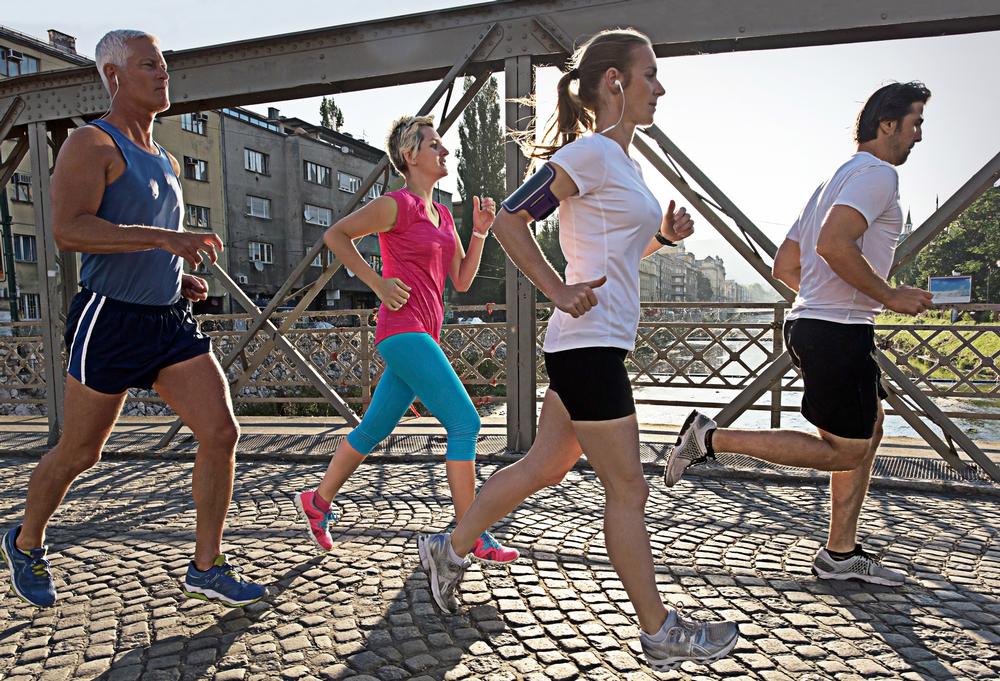Mental health: Mind and body connection is key for success at the gym
Health clubs are ultimately all about human performance – and the key to success is a sound mind and body connection, says Bert Stemarthe

There isn’t a sportsperson anywhere in the world, whether at elite level or even just good club standard, who will not attest to their mind being absolutely key to their performance in both training and competition. And yet this most critical aspect of human performance is ignored by the vast majority of health clubs and personal trainers – not only the way that mindset can positively impact performance, but also how mental health issues can negatively impact the way that members progress.
Over the next 20 years or so, health clubs could find themselves playing a leading role in addressing issues associated with mental health. Indeed, taking a broader perspective on the overall health of members could be the defining characteristic that separates health clubs from just gyms.
But in order for this to happen, health club owners and managers need to be aware of the mental health issues that affect their facilities and their bottom line today: not the serious mental health problems that require specialist treatment, but the everyday issues such as stress, low self-esteem, anxiety and the like.
I recently did a presentation for a group of personal trainers entitled ‘When a client exceeds our expertise’. It set out to explain the implications for a trainer when a client has low self-esteem or is suffering from stress or anxiety and other issues unrelated to, but having a direct impact on, physical training. The following is by no means an exhaustive list of issues, but here are the key themes from that presentation.
Low self-esteem
The power of low self-esteem is often under-estimated. Its meaning is also often misunderstood, and it isn’t easily detected by the untrained eye.
Self-esteem is literally our internal validation of our value or worth. It will largely determine what standard of relationship we want, promotion we seek and generally the life we ‘deserve’ to have.
Now consider if a member has low self-esteem and doesn’t believe they ‘deserve’ to lose, or are ‘worthy of’ losing, weight. In this scenario, any conscious action undertaken by them – such as working out or eating an apple instead of a doughnut – will be unconsciously undone by some other means, such as excessive alcohol or reduced adherence to the programme.
They may outwardly seek something such as weight loss, job promotion or a relationship, but inwardly they don’t believe they deserve it. In this instance, exercise and or dietary advice flies in the face of one of the most fundamental aspects of human nature: what we think we are worth.
The thing to remember is: people with low self-esteem join health clubs all the time.
FOOD connections
Nutritionists will tell people what to eat; good nutritionists educate people in how to eat; but few nutritionists are equipped to resolve the issues of why people eat the way they do. Understanding why people make the food choices they do is critical.
The more someone turns to a particular food at a particular time, the more this indicates an emotional connection to that food – for example, cheese when they are bored or sweets when they become stressed.
Locus of control
Locus of control is a topic I find very interesting. Someone who is in ILOC (internal locus of control) is internally driven and will make the changes to their lives that they deem necessary, when they deem them to be necessary. However, if someone is in ELOC (external locus of control), they tend to wait for changes in their environment before they can make changes in themselves.
Outside of the gym, someone in an ILOC position will likely take care of their diet and adhere to a programme they’ve set themselves, perhaps in consultation with a gym instructor or PT. However, if they’re in ELOC, it’s less certain what their habits outside the gym will be – even if they’re an active gym-goer. If they’re surrounded by friends and loved ones who look after themselves, that’s great – but if their environment is less conducive to good health, this is what will prevail.
Stress & anxiety
PTs, gym instructors and anyone working in a health club who has a relationship with a member may be able to detect those suffering from stress or anxiety. Indeed, a member may confess to these issues.
However, although stress and anxiety are often brought together in the same sentence as if they’re the same thing, they aren’t the same thing at all. The reason they’re together here is simply because they’re both common mental health issues that will not only affect how well someone performs in the gym, but whether they will turn up at all.
Time – or lack thereof – is often a huge contributing factor in the build-up of stress. A recent survey published in the London Evening Standard cited more than a quarter of those giving up their gym membership did so because of a lack of time; when someone is busy and stressed, one of the first things to go will be the health club visit – even though this could actually help reduce their stress. If this situation persists, their question will become: ‘What’s the point of keeping my membership at all?’
Anxiety is the anticipation of an event that’s outside our consciousness, and is characterised by feelings such as foreboding and excessive worry. Anxiety comes in many forms, and many levels of severity, but at its heart it’s a fear response. As human beings, we have three responses to a fearful situation: fight, flight or freeze. And none of these are conducive to regular attendance in the health club, because at the time of an anxiety episode, very little else matters to that individual.
Meaning
The significance of the word ‘mean’ is often lost in normal language. Not so in therapy. Meaning underpins and drives goals, so understanding what it means to a client to, say, lose weight is critical. Does it mean my husband/wife will stop calling me fat? Or that I won’t die of a heart attack soon, or I’ll look great on my wedding day? So understanding what it means to members to be there in the club helps trainers to engage at that level. This has to be in the forefront of the minds of instructors and PTs, so they can better focus their services.
However, be aware of further hurdles even if you establish why the member is at the club. One of my clients once described her fat as a carapace. It’s difficult to not be categorical about something like this, so I won’t try: it really doesn’t matter what you know about exercise and nutrition if faced with such a client. They absolutely will not shed that fat until the idea that the fat is there to protect them is shifted.
Focus on expertise
But what, as an owner or manager, can you do about it? I believe there are a number of opportunities for health club operators that want to begin to understand their members.
The first thing would be to get a therapist in your building – if there’s someone on-site who has the expertise to deal with the issues outlined in this article, it paints the entire club in a favourable light.
The stigma of mental health is in decline and therapy in this country is booming in terms of numbers of people seeking treatment. There’s far more openness around this topic than was the case just a few years ago, so referring a member to a therapist working within the club is no longer as hard a conversation as it might once have been.
Then make sure you ask your members ‘why?’ – why do, or did, they want to join and what do they want to get out of their membership? Membership sales should focus as much on individuals’ health needs as on showing off the clubs’ facilities. Focus on the expertise within the club: nutritionists, therapists and so on.
The average health club member may not seek to compete at the next Olympics, but nevertheless everyone can benefit from expert guidance in getting their mind to work in concert with, rather than against, their bodies.
About the Author

Bert Stemarthe is a cognitive hypnotherapist who also had a 21-year career as a personal trainer, starting out in Holmes Place in 1995. In 2016, he was invited to present on ‘Treating anxiety without medication’ to the BMA (British Medical Association). He has clinics in Harley Street and the City of London.
www.you-first.net
[email protected]



Leisure Centre Duty Manager
Leisure Supervisor (Development)
Recreation Assistant (Dry Site)
Party Leader
Cleaning Assistant
Duty Manager
Duty Manager
Team Leader (Harrow School Fitness Club)
Centre Manager (Leisure)
Director of Operations
Fitness Motivator
Recreation Assistant/Lifeguard (NPLQ required)
Membership Manager
Recreation Assistant
Swim Teacher
Swim Teacher
Chief Executive Officer, Mount Batten Centre
Swimming Teacher
Swimming Teacher
Company profile

Featured Supplier

Property & Tenders
Company: Knight Frank
Company: Belvoir Castle
Company: AVISON YOUNG
Company: London Borough of Bexley
Company: Forestry England














